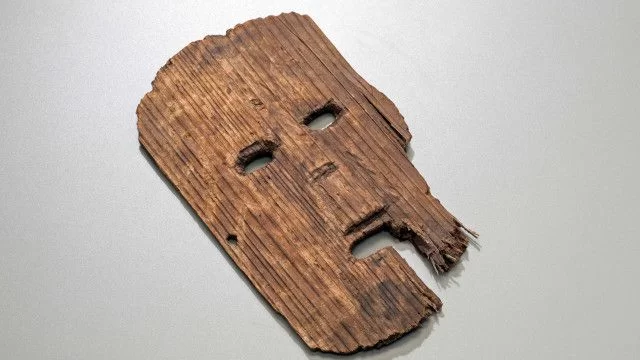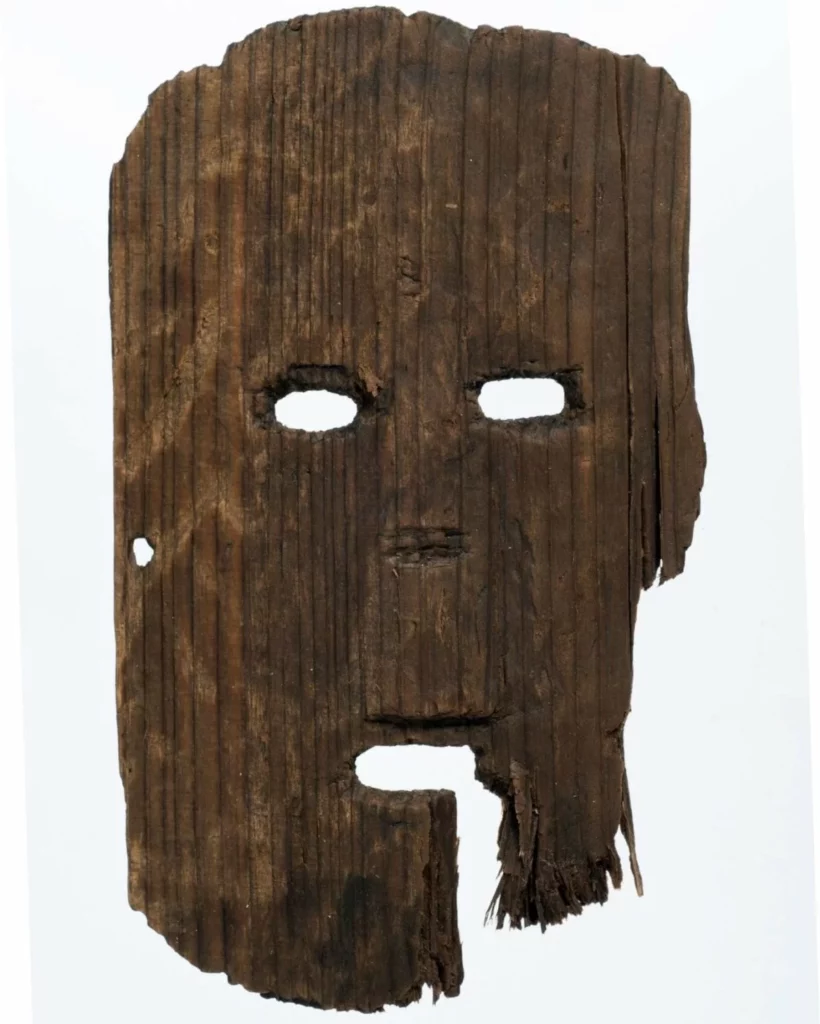1,800-year-old wooden mask likely used in farm festivals found in Japan

Archaeologists have unearthed an almost perfectly preserved wooden mask from the early third century at the Nishi-Iwata ruins in Osaka Prefecture, Japan.
The discovery was announced by the Osaka Cultural for Heritage Center on April 24.
The discovery is the third example of a wooden mask from this period. Experts believe the artifact was important in influential agricultural festivals organized by powerful people at the time.
The wooden mask, hewn from a cedar tree, measures around 30cm in height by 18cm wide and features two eye holes, a mouth, and a perforated hole surviving on one side that probably held string for holding the mask on the wearers face.
The mask was found in flood sediment 2.9 meters below the surface of the ground. It was discovered next to a piece of a wooden water bucket and a wooden object in the shape of a hoe that had been burned. Experts believe the three items may well have featured in agricultural festivals.

According to the researchers, the mask may have been used in ceremonial rituals during significant agricultural festivals around 1800 years ago, during the Yayoi era.
During this time, Japan transitioned to a settled agricultural society, employing agricultural methods introduced from Korea in the Kyushu region.
The mask was probably displayed at festivals because it is too heavy to wear, according to Kaoru Terasawa, director of the Research Center for Makimukugaku, Sakurai City, in Nara Prefecture.
Kaoru Terasawa, said: “I believe the mask represented a ‘spirit of a head,’ which was believed to be a god in the shape of a human and represented the authority of Okimi.”
Okimi is the title given to the ruler of the Yamato Kingship, a political alliance of powerful families centered in modern-day Nara Prefecture that ruled from the third to the seventh centuries.
The mask will be on display at the Museum of Yayoi Culture in Izumi, Osaka Prefecture, from April 29 to May 7.